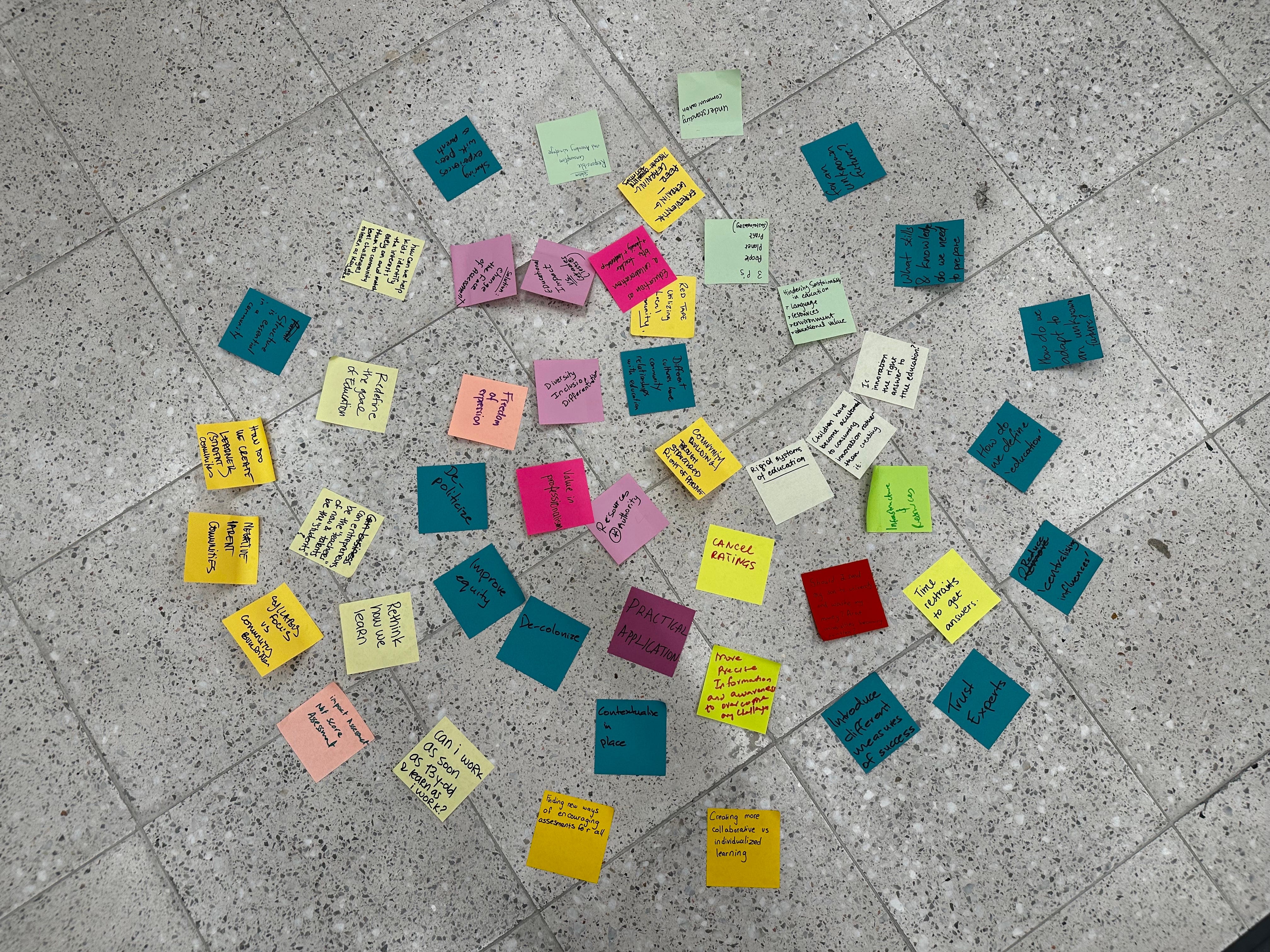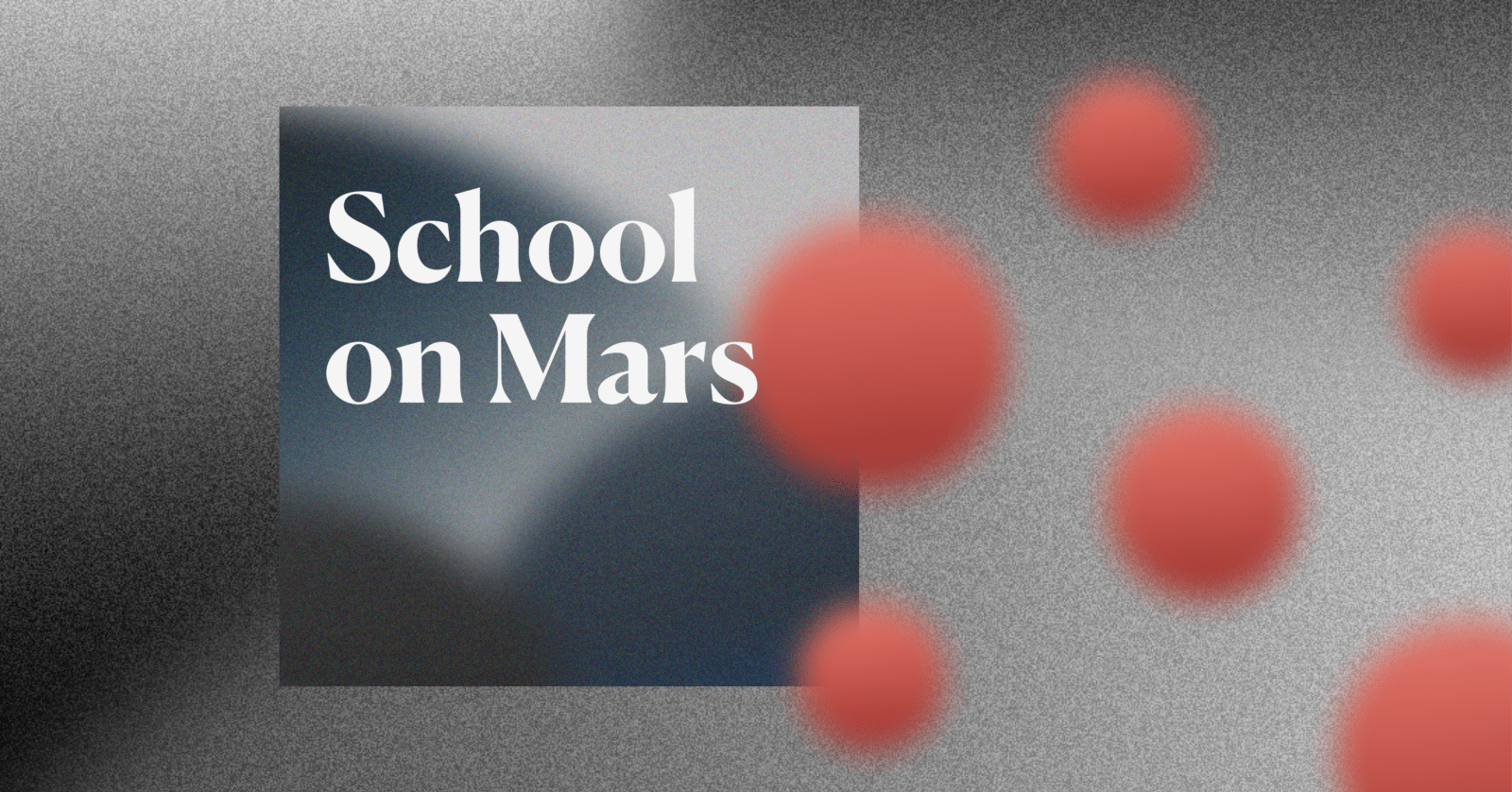School on Mars
Published in ATÖLYE Insights · 6 min read · May 5, 2023
Re-Imagining Education As A Transformative Force For A Regenerative World
Author: Zeynep Aykul Yavuz, Senior Learning Designer, ATÖLYEEditor: Nikkole MojicaIn-text Illustrations: Gökçe Kodan
Introduction
One repercussion of today's rapidly changing world and its increasing level of uncertainty is the pressure on us to reconsider how we work, learn, teach, experience, design, and more.
On January 25th, 2023, we facilitated the "School on Mars workshop" together with Russel Cailey, managing director at THINK Learning Studio, and Brett Girven, principal of The Arbor School Dubai. As we contemplated the potential for drastic and irreversible changes on Earth, the School on Mars concept - designed by Russel - became our guiding framework for imagining the future of education.
How might we redesign education on Mars? How about on Earth?
We gathered as a group of designers, educators, and school leaders, all with a shared interest in exploring how shifts in existing models could manifest in a world without preconceived constraints. Together we discussed how education could be a transformative force to improve the functionality and effectiveness of systems of learning, doing, inventing, creating and beyond.
The Workshop

To begin, we attempted to address the inquiries raised by the attendees concerning the limitations and possibilities associated with their understanding of adaptability, sustainability, community, and creativity. Then teams were formed around similar characteristics and were directed to design a school on Mars by considering the education system, roles, ecosystem, and community.
Now imagine you are a part of the first colony on Mars. How would you shape the educational system?
To answer, I'd like to pose another question: Is education, or an educational system as it is defined today, needed on Mars anyway?
The Merriam-Webster definition of education reads:
1. a: the action or process of educating or of being educated
also: a stage of such a process
b: the knowledge and development resulting from the process of being educated
2: the field of study that deals mainly with methods of teaching and learning in schools
Classified (in part) as a process that requires teaching and learning tools to exist, under a clearly defined physical structure, we can certainly attribute value to the role a school plays in the process of acquiring knowledge and developing skills. This classification, however, positions learners and educators as passive despite their critical and active role in "the process of educating or of being educated." How then with limited information and awareness of our own real-world observations and assumptions could we redefine education for a new context? What would we take with us? What would we leave behind?
With Mars in mind, we pondered over the following questions:
- Physical space: Do we need a certain building or buildings where students come together to learn?
- Roles: Who are the students? What role does age play in determining the level of education received? Who are the teachers? Can we redefine roles beyond our accepted norms? Can we abandon the pursuit of mastering skills or knowledge in a formal setting? Can we partake in apprenticeships through real experiences in the field, and create learning experiences on the go?
- Prior knowledge: How can we incorporate existing knowledge in a new place, without depending heavily on collective knowledge?
- Success: How can we define and measure success? Since we are on a new planet, can we say surviving is a success?
- Being in the education system: If we think beyond criteria, assessments, passing, and failing tests, what actually keeps people learning?
This last question prompted me to start thinking about how we arrived at the current education system; forgetting along the way what actually motivates us as human beings to learn. When discussing best practices, there are often examples of experiential learning or authentic learning, where learners interact with real-world situations rather than isolated bits and pieces that attempt to simulate education. School on Mars guided us through uncertainties and visions and proved to be a beneficial workshop for us all.
The teams came up with the following approaches for a redesign of the education system on a new planet:
- Identifying what motivates people to learn as a lifelong skill
- Normalizing the discovery of multiple paths
- Learning from who knows, without a traditional teacher role
- Establishing the "learner" as vital to a learning community built around tackling challenges
- Making inventors and entrepreneurs on Mars the new "teachers" to help model ingenuity
- Making learning experiences necessary to scale up for upcoming colonies by sharing with peers and families
- Centering the importance of community
- Eliminating the standard for standardization
These concepts designed to serve education on Mars were in direct contrast with today's education system. Though separate from people's daily lives, they allude to connecting people's capabilities with lifelong learning desires and encourage learning communities that don't depend on a credentials-based system to validate those responsible for educating.

With the rise of industrialization, humanity has adapted to patterns of standardization, seemingly disregarding the value of true talents and passions. The existing education model trained us to be good at interacting and learning by observation, replication, and harnessing our collective desire to improve as humans. From an evolutionary perspective though, we all have an instinct to learn which has been nurtured by cognitive toolkits (our comprising of the mental tools and frameworks that we use to process, organize, and make sense of information and experiences, and that shape our understanding of the world and our place in it) inherited from our culture, language, and societal structures.
To innovate and change education radically here on Earth, I would conclude that we could benefit from eliminating various outdated assumptions and maintaining curiosity to adapt. Being aware of which parts of our practices are limiting, can help us make them obsolete, or even figure out how to mold them for new models, contexts, and versions of success despite what planet we're on.
Which assumptions might you carry from Earth to Mars as you re-design education? If you're interested in exploring our School on Mars workshop modules and presentations, send me a note at zeynep@atolye.io.
To learn more about ATÖLYE's learning design practice, check out our article on "Being a Learner at ATÖLYE Academy" here.
